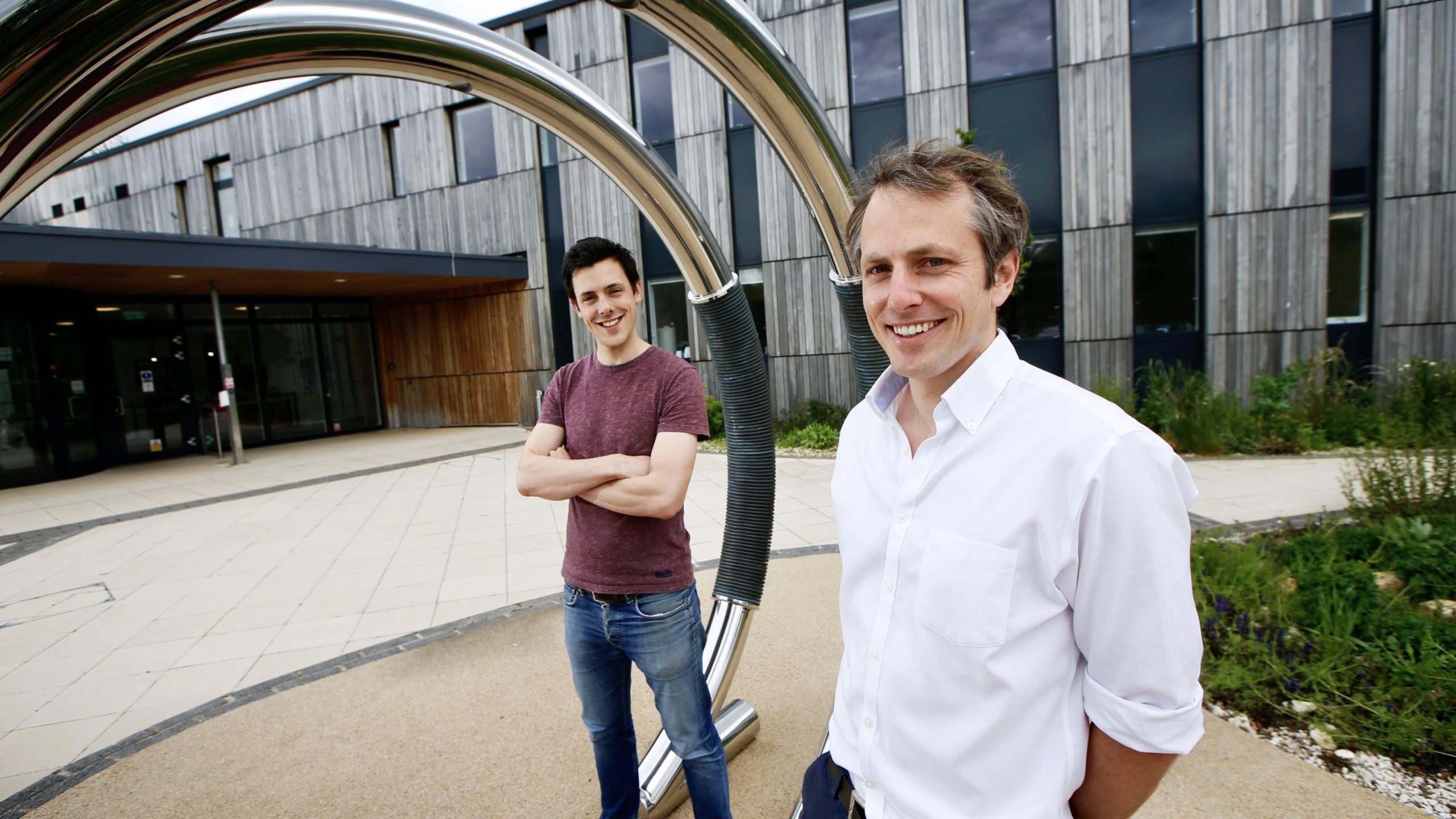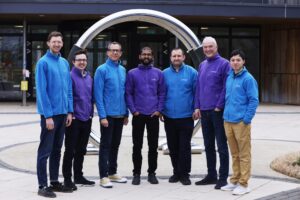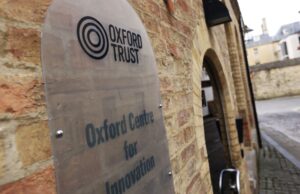DJS acquired by AbbVie & other autumn highlights from our innovation centres
October 26, 2022

Nothing stands still in the innovation space! This autumn has been an exciting time for growth and development for companies in our Wood Centre for Innovation and Oxford Centre for Innovation. We’ve gathered some of the latest highlights to share the successes of these companies along their innovation journey.
DJS Antibodies acquired by AbbVie
A highlight of the past week has been the announcement that Wood Centre for Innovation-based DJS Antibodies has been acquired by global pharmaceutical company AbbVie for the sum of $255 million. Read the announcement from AbbVie.
DJS Antibodies’ revolutionary antibody discovery platform, HEPTAD, is breaking ground in an antibody industry that is worth over $100 billion dollars globally. It is facilitating the discovery of antibodies against proteins that have been difficult to target through drugs, like transmembrane G-protein coupled receptors (GPCRs). Their work aims to establish a pipeline of therapeutics to help patients suffering from chronic inflammatory and fibrotic diseases such as Idiopathic Pulmonary Fibrosis.
Through the acquisition, the HEPTAD platform will complement AbbVie’s current capabilities in biotherapeutics research. DJS Antibodies will continue to generate antibody therapeutics and novel insights against targets like GPCRs, enhancing their work by leveraging the established drug discovery expertise at AbbVie.
Co-founded by Dr David Lewellyn and Dr Joe Illingworth (photographed above outside the Wood Centre for Innovation), DJS Antibodies started their journey at Heyford Park Innovation Centre. They moved to the Wood Centre for Innovation in May 2021 when they successfully sourced venture capital to support them setting up their own custom labs here. When we interviewed David in June last year, we asked him about his five-year plan. He said, “We want to keep exploring great science in the pursuit of making life-saving medicines and getting them to patients. To do this we’ll have to work collaboratively with great pharma companies to accelerate our antibody drugs into clinical trials.”
Just over a year later, this plan is firmly on track. We congratulate DJS Antibodies on their success!
QuantrolOx raises €10.5m
It has also been a successful season for funding and expansion for a number of companies at our centres.
QuantrolOx, based at our Oxford Centre for Innovation, has raised €10.5m in funding from the European Innovation Council. Of this total, €2.5m is grant money available upfront, and the remaining €8m is reserved as funds to match venture capital investments from other sources, boosting appeal for investors. The funding will be used to support the launch of their product in 2023. Read the story published in Sifted.
The company has grown tremendously in their time at the Oxford Centre for Innovation, doubling their team over the last six months. From a staff of eight at the time of our first interview with Co-Founder Professor Andrew Briggs in March 2022, they have expanded to a team of 17.
CMT Research Foundation funds Samsara
Another funding success was announced this month by Samsara Therapeutics, who have secured funding in a partnership with the CMT Research Foundation. The CMT Research Foundation focuses research on treatments and cures for Charcot-Marie-Tooth (CMT) disease, a degenerative disease of various forms involving peripheral nerves, which is characterised by progressively worsening nerve degradation, numbness and muscle weakness.
CMT1A is a form of CMT currently without any therapeutic treatment options. Samsara Therapeutics hope to fill this gap, through their work on therapeutics to restore autophagy – the process by which cells recycle damaged or dysfunctional components. They have demonstrated that with novel autophagy enhancers they can rescue CMT1A nerve degeneration in mice, showing exciting potential for CMT1A therapeutics with further exploration.
This is the largest investment the CMT Research Foundation has made to date, and the dedicated project will facilitate further optimisation of pipeline autophagy compounds, scale up manufacturing of the candidate, and clinical trials that may lead to a treatment option for CMT patients. Read more about the project here.
Optellum raises $14m Series A funding
At the end of September, Oxford Centre for Innovation-based company Optellum announced it has raised $14 million in a Series A funding round. Their AI and machine learning platform is making strides in the diagnosis and treatment of early-stage lung cancer. Their Virtual Nodule Clinic can help physicians identify and track at-risk patients, diagnose lung cancer earlier so that treatment can be started earlier, and minimise invasive procedures on benign lung lesions. This investment will enable the company to expand its operations and commercial launches in the UK and USA, accelerate its research and development, and expand its platform to support personalised treatment . Read the full news item.
Human Centric appoints all-female lab team
One of our newer clients joining the Wood Centre for Innovation this year, Human Centric Drug Discovery, is excited to now have their full lab team in place. An all-female, multinational team will be using their expertise to help find a new generation of drugs to treat brain disorders, such as migraines and Parkinson’s Disease. HCCD’s approach to drug discovery draws from multiple sources of data – data from laboratory cell culture, data from genetics, and data from real-world health system databases. This multi-faceted approach is refining the pipeline to successful therapeutics. Read more about their work in our interview with CEO, James Peach, earlier this year.
Quorbit acquired by UKG
Quorbit, a start-up based at the Barclays Eagle Lab at the Wood Centre for Innovation, announced its acquisition by UKG Inc., a leader in workforce management systems, which will accelerate the development of its innovative labour planning solutions. Quorbit’s approach using AI and modelling to proactively create strategic labour plans from the bottom up will help organisations optimise operations, predict future staff needs and craft their growth paths. Read what we learned about Quorbit in our previous interview with co-founder Matt Brown.
As we join in celebrating these developments and look forward to the future successes that lie ahead for companies based in our centres. The Oxford Trust aims to help create an environment where STEM-based entrepreneurs can deliver ground-breaking products and where success is celebrated. We are pleased to share a part of the journey with you.



